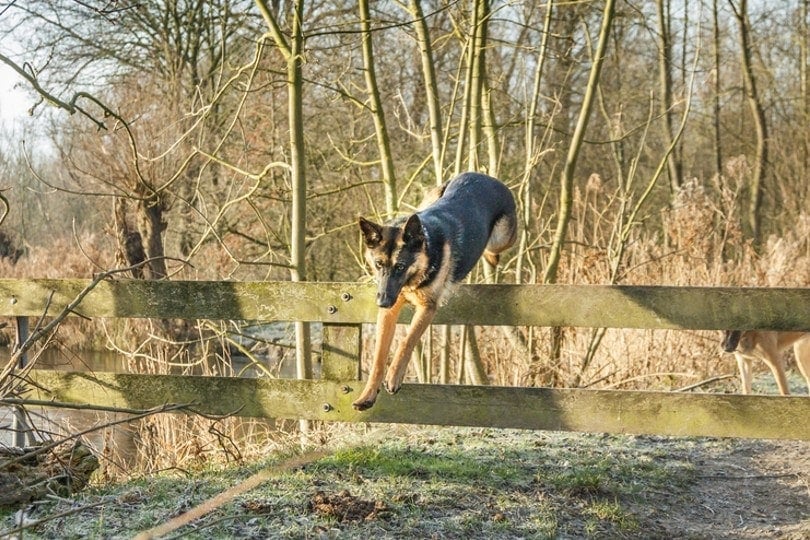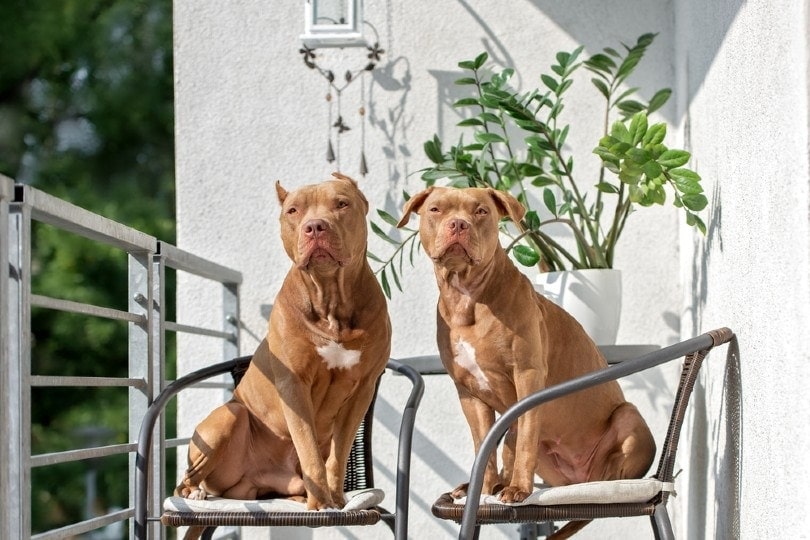Are Huskies Good Family Dogs? 6 Things to Consider

Updated on
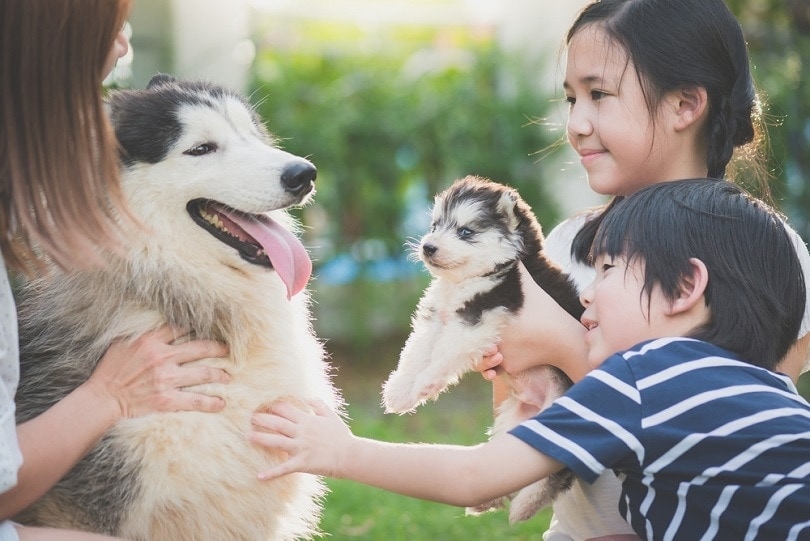
If you are looking for a great dog to add to your family, Huskies may be a great breed for you. These dogs can be really rambunctious and fun, but they are surprisingly known for being gentle and kind with children as well. This makes Huskies great family dogs.
Of course, it’s important to meet the individual Husky one-on-one before making any decisions. Although Huskies as a whole are great family dogs, you don’t want to select an individual dog that is aggressive or poorly tempered.
To find out more about selecting the right Husky for your family, keep reading. This article gives you everything you need to know about choosing a Husky to get along with your family.
Are Huskies Good Family Dogs?
Huskies are incredibly social and lovable. They love to be part of a pack and are known to be really gentle with children, despite their larger size. Even though they require a lot of interaction and tend to be high maintenance, they really are a great family dog if you are willing to put in the time and effort. Here’s some more general information about Huskies as a breed.
Size
This dog is considered a medium to large size dog. The average height is between 20 and 23.5 inches. On average, they will weigh between 35 and 60 pounds. As with many other species, the females tend to be much smaller than the males.
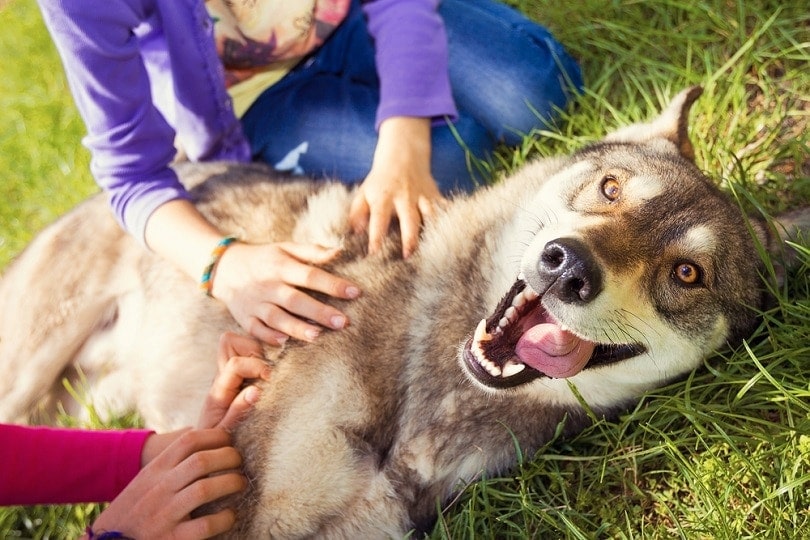
Husky Life Expectancy
If you want a dog that will grow up with your child, Huskies are a great breed. Huskies typically have a life expectancy between 12 and 14 years. If you get the Husky whenever your child is about four years old, the Husky should live with your child until they go to college.
Common Health Issues
As a whole, Huskies are considered a healthy breed. Especially if you get your Husky from a reputable breeder, you should get a healthy dog. With that being said, certain issues like hip dysplasia and eye issues like juvenile cataracts can be found.
A reputable breeder will often screen for these sorts of illnesses beforehand, ensuring that your pup is healthy. Even after you get your Husky, it is recommended to take your pup to see a canine ophthalmologist yearly.
Grooming
In comparison to short haired breeds, Huskies require a bit more grooming maintenance, but they certainly require less maintenance than other long-haired breeds. In terms of their cleanliness, Huskies do a good job by themselves. You should only need to give your Husky a bath a few times a year.
You should comb through your Husky’s coat daily. This will ensure that its coat and skin is healthy. Plus, it will keep your home clean since Huskies shed their undercoat about twice a year. You can use a pin brush to rake out any loose hair.
As with any other dogs, trim their nails regularly and invest in good dental care. Huskies don’t have any additional nail or oral health issues to watch out for.
Exercise
The one area where Huskies can be a bit high maintenance is in their exercise. These dogs need a lot of physical and mental stimulation. Given that these dogs were bred for running purposes, they like to run a whole lot. If you don’t provide your Husky with mental and physical stimulation, this breed is known for getting into trouble out of boredom.
Have a large backyard so that they can run about. Additionally, take them on walks and provide them with a lot of opportunities for play. Interactive toys are notorious for being a great way to bust boredom in Huskies.
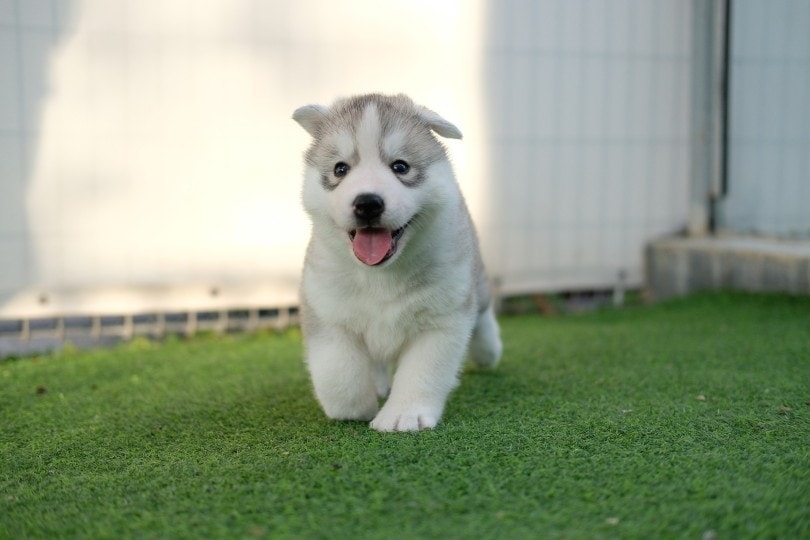
Training
Huskies are known to be a bit stubborn if not trained early. If you train your Husky early, however, these are smart dogs that are easy to train and will listen to you. It’s important to socialize and train them early on for best results.
Are Huskies Family Dogs?
If you are willing to train your Husky and provide them the energy and stimulation they need, they are a fantastic breed for families. Because they are so sociable, Huskies generally love people, including both adults and children.
In fact, Huskies are loyal and pack-oriented. As a result, Huskies love to be a part of a family, and they are known to be protective and loyal to their pack, AKA you and your family. This is something that many families want, especially if they have young children who need watching over.
If you have children specifically, Huskies can be great playmates. Because they have so much energy, Huskies will be more than happy to play with your children in the backyard.
Another reason why Huskies make great family dogs is that they have a pretty predictable temperament. What this means is that once you know your Husky, you basically know how they will react in most situations.

Are Huskies Aggressive?
For example, most Huskies are even keeled. They aren’t particularly aggressive, even though they can be protective of their pack. This makes them a great dog to have around children since they aren’t likely to act aggressively.
Even if you have small children and babies, Huskies can be a great pick. Not only are they even keeled, but they aren’t big barkers. This means that your Husky shouldn’t wake up your baby from barking. We should note, though, that Huskies do tend to howl.
Huskies and Children
As a whole, Huskies are great with children. They are protective, but they are not overbearing or possessive. Additionally, they love to play and do not have aggressive demeanors, making them perfect for children.
Even though Huskies are generally considered a great breed to have around children, you still need to supervise your dog with the child. Even though the breed as a whole is great with children, that does not mean your individual Husky will be. Especially when you first get the Husky, it’s important to supervise playtime.
After you have confirmed that your Husky isn’t aggressive, it is still recommended to supervise playtime between your Husky and child. You never know when a child could do something to hurt or irritate the Husky on accident, causing them to act aggressively.
Once your child gets old enough to know how to play with dogs in a way that isn’t aggressive or harmful, you shouldn’t have much to worry about concerning your child and your Husky.
How to Find the Right Husky For Your Home
After learning all of this, you’re probably still thinking about adding a Husky to your home. After all, they really are a great breed for families, especially families with young children. The next step in your journey is actually finding a Husky.
You can use different sources online to help find Huskies and other breeds near you. You could also look into rescue organizations, such as National Husky Rescue Groups to find dogs actively in need of homes.
Schedule A One-On-One with Your Pooch
After you find the Husky you think you want to invite into your home, it’s important to set up a one-on-one playdate beforehand. As we have mentioned multiple times already, just because Huskies are great family pets does not mean your individual Husky will be.
Setting up a one-on-one with your possible pooch will give you the opportunity to meet it and see how it interacts with you and your children. If the dog acts friendly and kind during the one-on-one, you should go forward with the adoption. On the other hand, it may be best to look into other puppies if the Husky acts aggressively or resistant to your family.
Conclusion
Overall, Huskies are a great family breed. Between their playful nature and gentle demeanor, they will make great companions to your child from the time they are toddlers to the time they go off to college. Just make sure to provide your Husky with a lot of physical and mental stimulation, or else it may get into some mischief.
Featured Image Credit: ANURAK PONGPATIMET, Shutterstock



